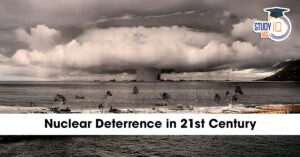Table of Contents
Context: The Andaman and Nicobar administration is promoting sustainable and environment-friendly transportation in the region.
Paradigm Shift to Green Transport (Andaman & Nicobar) Background
- The Andaman and Nicobar Islands are a group of islands located in the Bay of Bengal, which are known for their biodiversity and natural beauty.
- However, like many other regions around the world, the islands have been facing a number of environmental challenges, including air and water pollution, climate change, and loss of biodiversity.
- One of the major contributors to these environmental challenges has been transportation. The islands have a limited road network, and most of the transportation is done by petrol and diesel-powered vehicles, which contribute to air and noise pollution.
- To address these challenges, the administration has been promoting green transport in the region, which includes the use of electric vehicles, bicycles, and other non-motorized modes of transport.
Challenges faced during Implementation Process
- One of the major challenges was the lack of awareness among the people about the benefits of sustainable transport. Another challenge was the limited availability of charging infrastructure for electric vehicles.
- The islands have a limited power supply, and the administration had to invest in renewable energy sources to support the charging infrastructure.
- Additionally, the administration had to invest in non-motorized modes of transport, such as bicycles, and create dedicated lanes for them to promote their use.
Solutions to the Problem
- The administration introduced a policy to promote the use of electric vehicles in the region. The policy included incentives such as tax exemptions and subsidies to encourage people to buy electric vehicles.
- The administration also invested in charging infrastructure for electric vehicles and installed charging stations in various locations across the islands.
- The administration also promoted non-motorized modes of transport, such as bicycles, and created dedicated lanes for them.
- The administration launched a bicycle-sharing program in the region, which allowed people to rent bicycles for short periods of time. This encouraged people to use bicycles for short trips, which reduced the demand for petrol and diesel-powered vehicles.
Results
- The efforts made by the administration to promote green transport in the region have yielded positive results.
- The use of electric vehicles has increased significantly in the region, and the administration has set a target of replacing all petrol and diesel-powered vehicles with electric vehicles by 2030.
- The use of bicycles has also increased, and the administration has created a network of bicycle lanes across the islands to promote their use.


 Why Iran Matters More Than Venezuela: En...
Why Iran Matters More Than Venezuela: En...
 Nuclear Deterrence in 21st Century: Is I...
Nuclear Deterrence in 21st Century: Is I...
 Denotified Tribes and 2027 Census: Deman...
Denotified Tribes and 2027 Census: Deman...

























